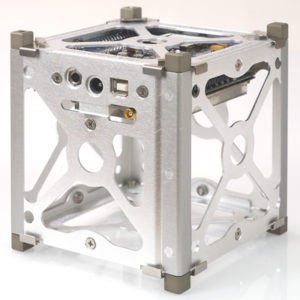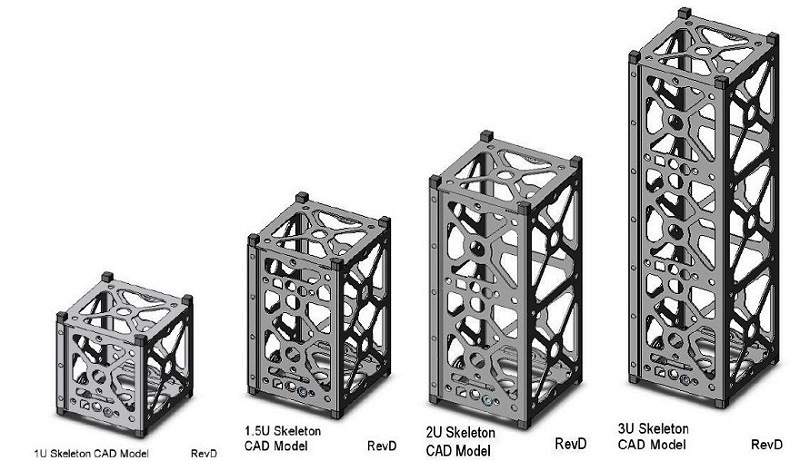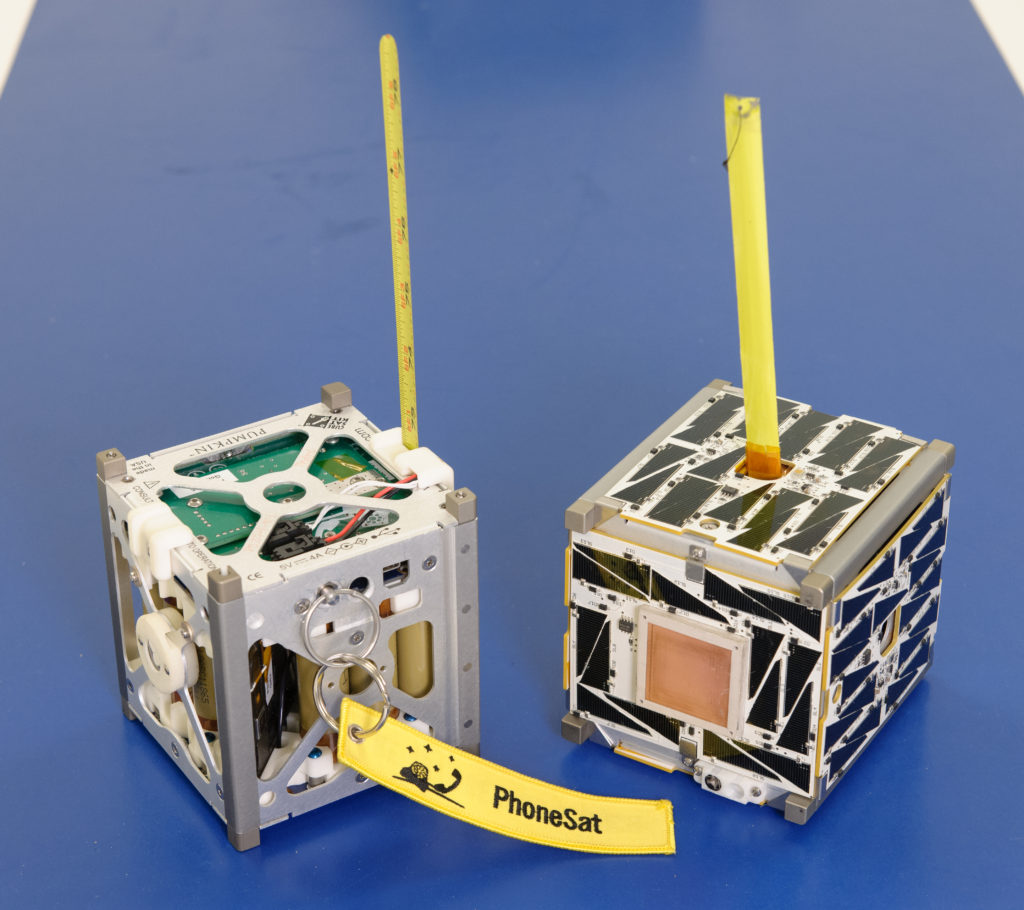Introduction to CubeSats
A CubeSat (also called a NanoSat) is a small satellite, typically ranging from 10 cm³ to 20 cm x 20 cm x 30 cm. (Smaller satellites are called PocketSats or WaferSats).
CubeSats that orbit the Earth for at least one orbit are true satellites. (“Satellites” that merely probe the upper atmosphere or are carried by a balloon are technically not satellites even if they are called such by public relations departments). CubeSats face many of the same challenges as do larger satellites, and hence have some of the same sorts of systems.
CubeSats typically include the following systems:
- Frame (structure)
- Payload (sensors, camera, other)
- Controller (CPU)
- Power (typically photovoltaic cells and batteries)
- Communications and antenna
- Guidance and navigation
- Attitude control (and sometimes propulsion)
- Thermal control (may just be a roll)
Structure
CubeSats require a structure. These can be purchased pre-built. They are typically in cubes of preset multiples of 1.0 U, 0.5 U or 0.25 U. They need to be able to handle the temperature extremes of space, which typically requires metal or exotic plastics.

1U CubeSat (10 cm x 10 cm x 10 cm, credit Cubesatkit.com)

Various cube sat sizes
Antennas:

Actual CubeSats (credit: NASA)
Communications
Cube sats must communicate with ground stations on Earth using specific frequencies.
Deployment
Cube sats can be directly launched, or transported to the International Space Station (ISS) and deployed form there.
CubeSat Ventures
- Planet (Labs) constellation (bought Skybox) (ISU connections)
- Teton Systems (education)
- Koolock infrared multispectral
- Spire (ISU alumnus)
- AstroDigital
Suppliers
- Pumpkin cube sat kits and parts
Ground Stations
You will need at least one ground station to communicate with your cube sat.
- Univ. of Hawaii mobile modular ground station (pdf)
- CubeSat Ground Station at the University of Arizona (pdf)
- Make: Build Your Own Ground Station
- CubeSat Shop ground station kit
Further Information and Resources
- Deep Space cube sats (NASA Mars mission)
- CubeSatKit kits and parts
- CubeSat Shop parts and kits
- EnduroSat CubeSat Store
- Space Challenges
- SpacePort Academy
- An Introduction to CubeSats (Bob WB4SON – September 8, 2014)
- An Overview of CubeSats from a Systems Engineering Perspective (Zamora, et al.)
- Nanosatellite Development from a CubeSat Designer’s Perspective (Kalman)
- CubeSats and Mission Success: A Look at the Numbers (Michael Swartwout)
- Mechanical, Power, and Propulsion Subsystem Design for a CubeSat (Cote et al.)
- Small Satellites for Space Weather Research (Moretto et al.)